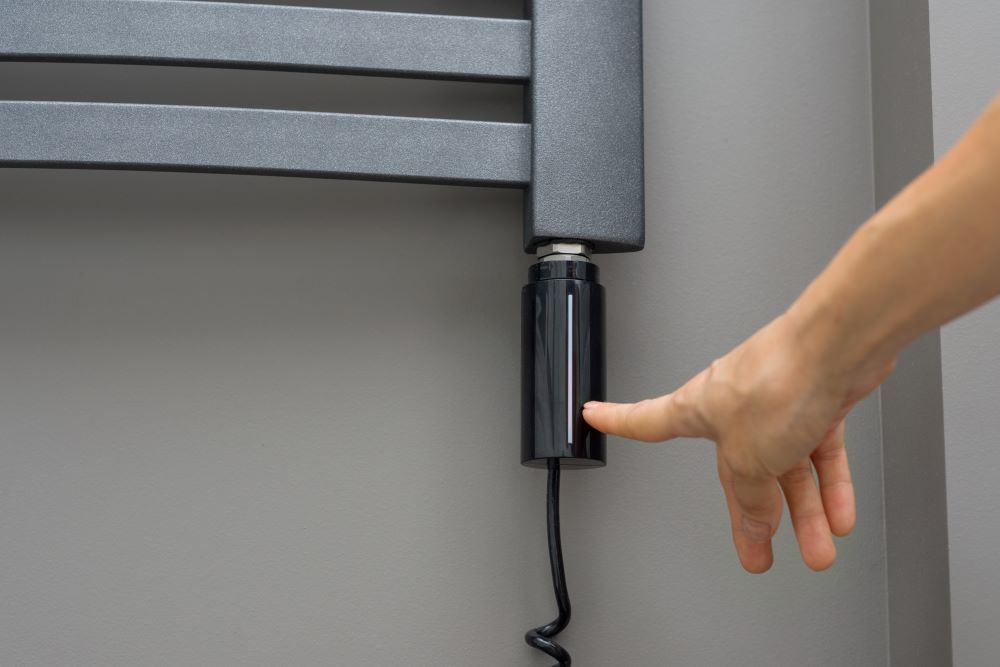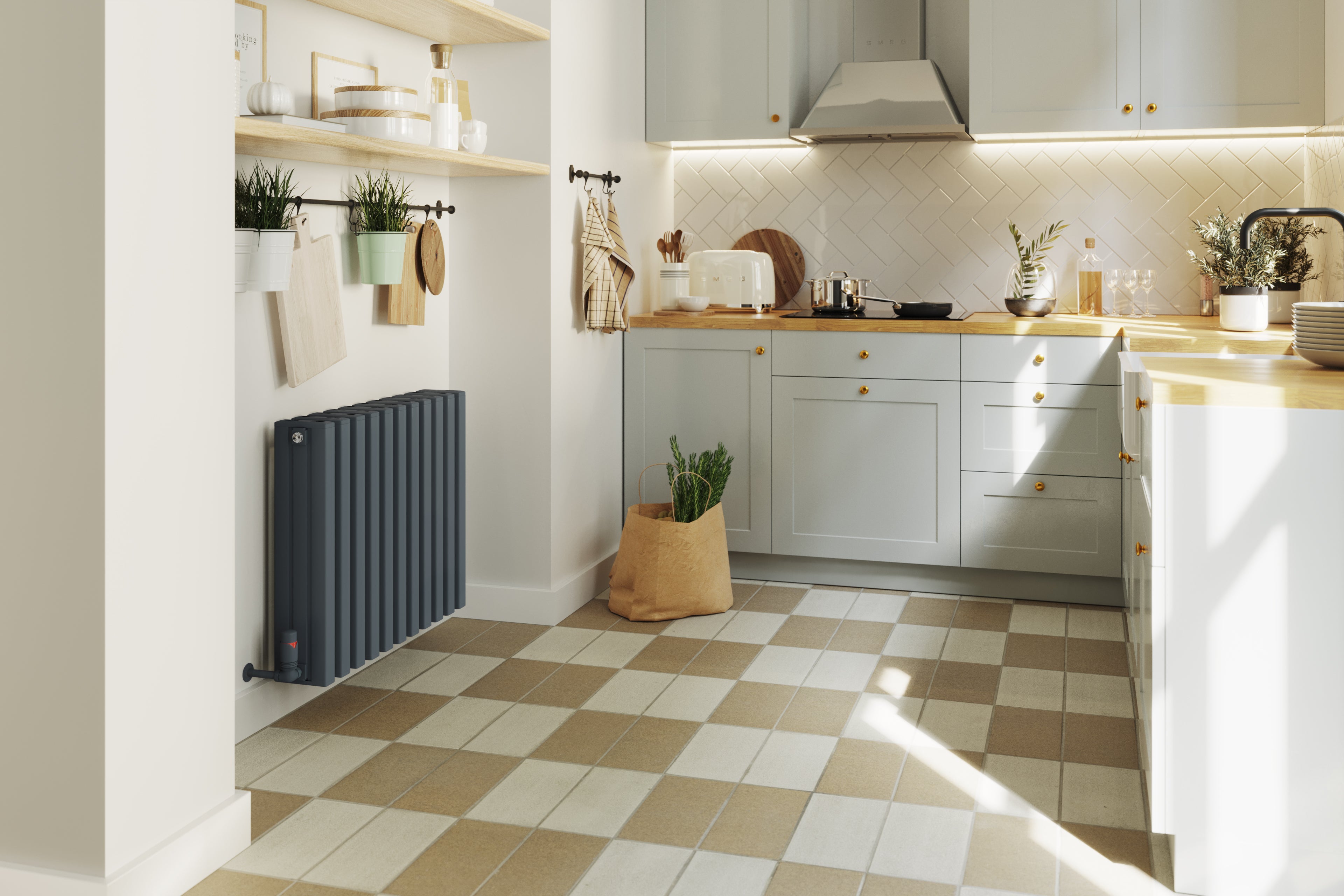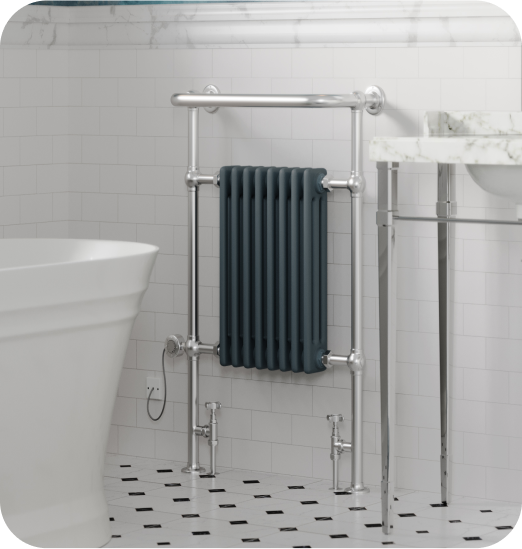
Are Electric Radiators Expensive to Run?
Are electric radiators expensive to run? A common question we get asked, especially considering the rising cost of living, green initiatives and modernisation of heating systems.
However, the answer isn't straightforward. With modern electric radiators, you’ll need to consider:
- Your home’s insulation and ability to retain heat
- The type/size of the radiator vs the size of the room
- The cost per wattage when the radiator is on
- The initial cost of purchasing the electric radiator
In this guide, we'll cover each of these factors, ensuring your radiator heating remains cost efficient and sustainable.
Are Electric Radiators Expensive to Run? The Cost per Wattage
Currently, with the energy price cap at £1,928 per year, the average cost per unit of electricity is more expensive than per unit of gas. According to Ofgem, energy will cost you 29p/kWh (versus 7p/kWh for gas).
However, if you’ve been planning to get a more environmentally friendly heating system for a while or already have electric heaters installed, don’t be too discouraged.
The good news? Electric radiators operate at 100% efficiency, meaning every single watt you pay for is converted into heat. Being highly efficient, this makes them still a popular investment for the home.
Let’s explore the other factors to consider when deciding whether electric is the best choice for you.
Your Home’s Insulation and Ability to Retain Heat
The insulation quality of your home will, undoubtedly, play a big role in the cost and efficiency of your radiators. A well-insulated home retains heat more effectively, reducing the workload on your radiators.
In these environments, radiators can operate at lower temperatures to achieve the desired warmth, which will save energy and reduce your costs.
Conversely, poor insulation leads to heat loss, requiring radiators to work harder and consume more energy. You can find out more about this in our blog How to Reduce Heat Loss in Your Home.
Other Factors That Affect the Cost of Running an Electric Radiator
As well as the above, here are some additional considerations to bear in mind when debating the costs incurred by electric radiators.
100% Efficient
Electric radiators are 100% efficient, which helps to save energy and reduce running costs in combination with proper insulation, heat retention and smart technology.
Expanding the Heating System for Home Extensions
When building an extension to a property, expanding the central heating system to cover the new rooms can often prove to be expensive and time-consuming.
This process can involve more extensive adaptations and installations to existing infrastructure and may require professional advice too. This can all contribute to higher costs in total.
Opting for modern electric radiators offers a faster, cheaper, and easier alternative to provide heating to the new space. Electric radiators are standalone units and can be easily installed without the need for complex modifications to the central heating system. This reduces costs and streamlines the addition of heating to the new rooms.
A Form of Renewable Energy
If your home has solar panels connected to the electricity network in the home, this additional source of power is a cost-saving way of running your electric radiators and can offset some of your energy costs, which is good for your wallet and for the planet.
Tailored, Intelligent Heating
While central heating radiators can be tailored to an extent with thermostatic radiator valves or installing smart heating controls, this isn’t fully isolated heating and the installation of a smart home heating system can cost additional money.
Whereas with electric radiators, because each unit is separate, they can be turned on and off between rooms whenever they are needed, which can be handy if you’re looking to curb your energy bills and avoid heat waste.
Individual Zone Heating
Electric radiators can also allow you to create different heating zones throughout your property, which can help you to better control your household’s energy costs.
For example, you may only want the heating on in a spare bedroom when you have friends over. That means that you aren’t wasting energy and spending money on heating areas that aren’t being used.
Low Maintenance
Apart from the occasional dusting, electric radiators do not need regular maintenance compared to traditional central heating. The reduced costs of maintenance work, replacement, and repairs will add up over time compared to older radiators.
Ready to Make the Switch to Electric?
While modern electric radiators can pose a higher initial upfront cost, it’s important to keep in mind other costs when looking at heating systems, including:
- The efficiency of heating with electric
- Reduced maintenance, meaning less need for repair or replacement
- Higher system durability/longevity
This is where gas-fuelled heating systems start to lose out and electric radiators begin to show their true worth.
Better understanding of how much electric radiators cost to run as well as the savings they can unlock can help you come to an informed decision about whether it’s worth it to make the switch.
At UK Radiators, we can provide you with guidance on our electric radiator products, as well as maintenance, or repairs. Give us a call on 0333 006 8227 or send your enquiry to sales@ukradiators.com and we'll be in touch.
























